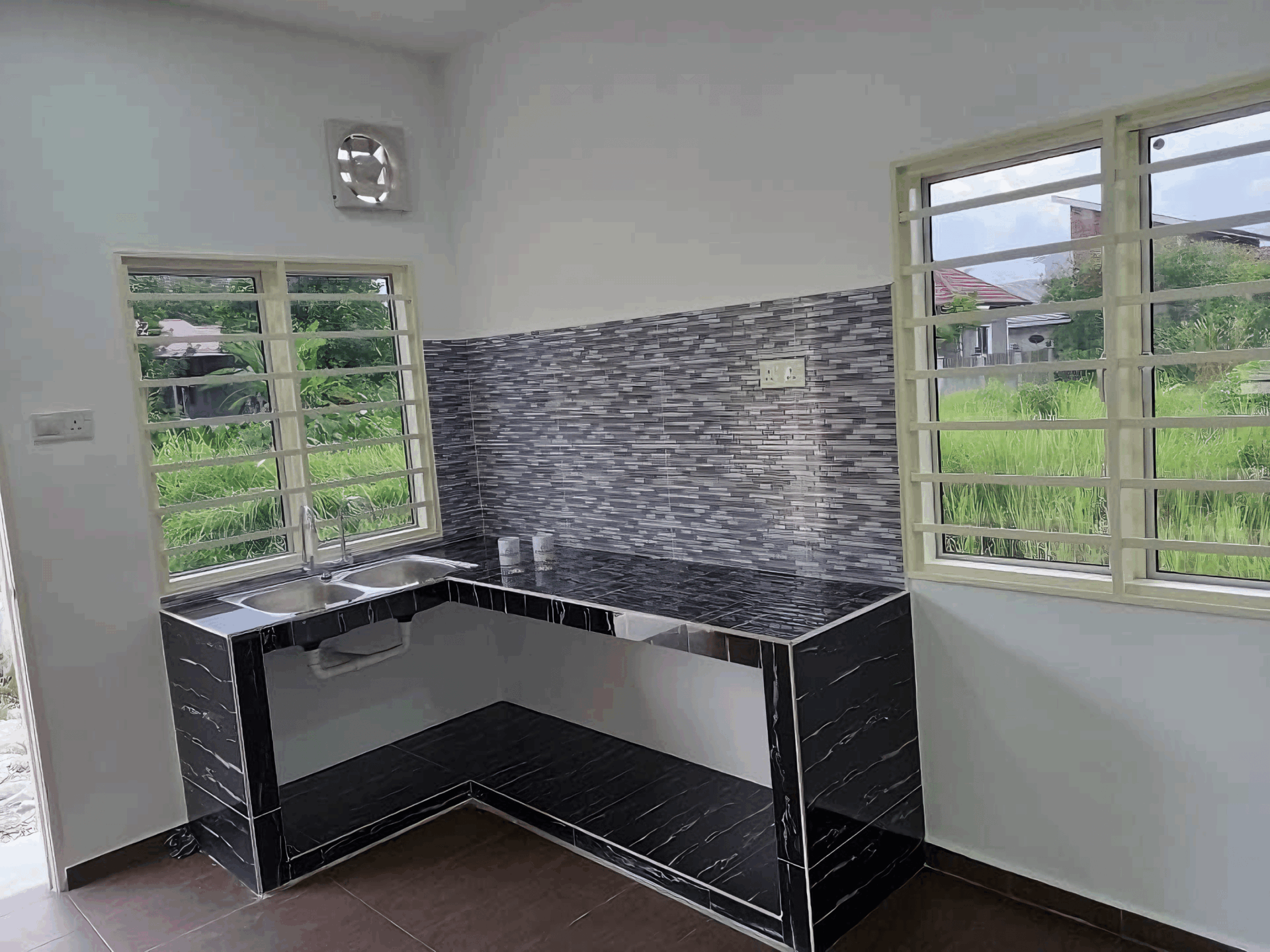Navigating the competitive landscape of Malaysia’s construction industry can feel a bit like trying to find your way through a bustling marketplace—exciting but a little overwhelming, right? With a plethora of players, from towering giants to nimble startups, and a constant stream of projects popping up across the nation, it’s essential to have a solid game plan if you want to stand out. Whether you’re a seasoned contractor, a fresh-faced architect, or someone just dipping your toes into this dynamic field, understanding the ins and outs of this industry can make all the difference. So, let’s explore some practical tips and strategies to help you cut through the noise, build valuable connections, and carve out your niche in Malaysia’s thriving construction scene. Ready to lay the foundation for your success? Let’s dive in!
Understanding the Current State of Malaysias Construction Industry
The construction industry in Malaysia is currently experiencing a dynamic shift influenced by various factors, including economic evolution and government policies. A notable trend is the growing emphasis on sustainable construction practices. Many companies are now exploring eco-friendly materials and techniques to reduce their environmental footprint while improving project efficiency. This conscious approach not only aligns with global sustainability goals but also appeals to a more environmentally-aware clientele.
Another critical aspect impacting the industry is the rapid adoption of technology. From Building Information Modeling (BIM) to drones for site surveying, tech is becoming a game-changer in how projects are managed and executed. It helps streamline processes, enhances collaboration among stakeholders, and offers real-time data analytics for better decision-making. As competition heats up, firms leveraging the latest innovations gain a significant edge, making it vital for businesses to continuously invest in technological advancements.
Moreover, the labor shortage remains a pressing challenge for contractors in Malaysia. With an increasing demand for skilled workers and a diminishing labor pool, companies are seeking creative solutions to this dilemma. They are investing in workforce training programs and collaborating with educational institutions to cultivate a new generation of skilled professionals. By doing so, businesses not only enhance their operational efficiency but also contribute to the wider development of the construction workforce in the nation.

Identifying Key Players and Their Competitive Strategies
When diving into the competitive scene of Malaysia’s construction industry, it’s essential to get a clear picture of the main players driving the market. Key contractors like Gamuda Berhad, IJM Corporation, and Sunway Construction Group are not just well-known names; they are pivotal in shaping industry trends. Each firm brings unique strengths to the table, whether it’s innovative project management techniques, sustainable building practices, or robust supply chain networks. Identifying who these players are helps construct a strategic overview of the market.
Moreover, competitive strategies vary tremendously among these firms. Some key approaches include:
- Cost Leadership: Companies focusing on reducing operational costs while maintaining quality to offer more competitive pricing.
- Differentiation: Firms that stand out with unique offerings, like eco-friendly materials or advanced engineering methods.
- Market Penetration: Players engaging in aggressive marketing tactics to capture a larger share of the market rapidly.
Understanding these strategies allows stakeholders to assess risk and potential collaboration opportunities, benefiting not just the major players, but also emerging companies looking to carve out their niche.
For a deeper dive into the strategic dynamics, here’s a concise overview of some leading companies and their focuses:
| Company | Competitive Focus |
|---|---|
| Gamuda Berhad | Innovative and Sustainable Solutions |
| IJM Corporation | Integrated Project Delivery |
| Sunway Construction Group | Smart Building Technologies |
This table illustrates how each key player capitalizes on their strengths, thereby contributing to the competitive landscape. By keeping tabs on these approaches and their impacts, industry participants can better navigate the challenges and possibilities ahead.

Leveraging Technological Advancements for Competitive Advantage
In the bustling construction landscape of Malaysia, embracing the latest technological advancements can set a company apart from its competitors. The integration of tools such as Building Information Modeling (BIM), drone surveying, and augmented reality can streamline processes and enhance project accuracy. By adopting these innovative solutions, firms can not only optimize their workflow but also deliver higher quality results that meet the demands of modern clients. Not to mention, these technologies can significantly reduce project timelines and costs, giving businesses an edge in a highly competitive market.
Moreover, leveraging data analytics can empower construction companies to make informed decisions based on real-time data. Implementing predictive analytics allows firms to foresee potential challenges and mitigate risks before they escalate. Companies can also utilize data for improving resource management, ensuring that materials and labor are optimized for efficiency. Here are a few key areas where data analytics can make a difference:
- Project Scheduling: Analyzing past project times helps in realistic scheduling.
- Cost Estimation: Data-driven models lead to more accurate budgeting.
- Maintenance Forecasting: Predictive insights help in planning maintenance needs effectively.
To elevate their game further, Malaysian construction firms should consider forming strategic partnerships with tech startups specializing in construction technology. Collaborating with innovators allows companies to access cutting-edge solutions without the overhead of developing them in-house. Here’s a simple comparison of various tech solutions that can be harnessed:
| Technology | Benefit |
|---|---|
| BIM | Improves collaboration and reduces rework |
| Drones | Enhances site surveying and monitoring |
| AR/VR | Facilitates better design understanding for clients |
By aligning themselves with modern technology, construction companies in Malaysia can navigate the competitive landscape more effectively. Staying ahead of the curve means being adaptable, discerning the right tools to implement, and understanding how these advancements can drive business success. The future of construction is here, and those who embrace it will not only survive but thrive.
Building Strong Relationships with Stakeholders and Clients
In the dynamic world of Malaysia’s construction industry, establishing robust connections with your stakeholders and clients is crucial for long-term success. These relationships are not just about transactions; they are built on trust, transparency, and mutual understanding. By engaging your clients right from the initial stages of a project, you can foster an environment that encourages honest feedback and collaboration. This sets the stage for open communication, allowing you to adjust plans and expectations as necessary.
One effective way to strengthen these ties is through active engagement. Host workshops, site visits, and regular updates to keep everyone in the loop. This transparency creates a sense of ownership among stakeholders, making them feel like a valued part of the process. Here are some strategies to keep in mind:
- Regular Communication: Set up consistent check-ins or newsletters.
- Feedback Mechanisms: Use surveys or direct conversations to gather insights.
- Networking Events: Attend and host local industry events to meet new contacts.
Another key element is understanding the unique needs and concerns of your stakeholders and clients. Each party has different priorities, whether it’s budget constraints, timelines, or sustainability goals. Being attuned to these factors allows you to tailor your approach effectively. Consider maintaining a simple table to outline key stakeholder priorities:
| Stakeholder | Priority | Concerns |
|---|---|---|
| Clients | Cost Efficiency | Time delays and budget overruns |
| Suppliers | Reliable Partnerships | Payment terms and delivery times |
| Community | Environmental Impact | Noise and traffic disruption |
By proactively addressing these priorities, you not only enhance trust but also position your firm as a thoughtful leader attuned to the local context. This understanding not only aids in navigating the complexities of projects but also cements your reputation in the industry as a reliable collaborator.

Adapting to Regulatory Frameworks and Compliance Standards
In Malaysia’s construction industry, taming the ever-evolving landscape of regulations and compliance standards is crucial. Companies need to stay ahead by setting up robust systems that can adapt swiftly to new laws and guidelines. This means fostering a culture of compliance throughout the organization, where every team member understands their role in maintaining standards. Some key strategies include:
- Regular Training: Provide ongoing training sessions for employees to keep them updated on compliance requirements.
- Compliance Checks: Establish routine checks to ensure all aspects of the construction process adhere to current regulations.
- Collaboration: Work closely with regulatory bodies to understand upcoming changes and expectations.
To facilitate smoother navigation of the regulatory maze, it’s beneficial to utilize modern technology. Compliance management software can streamline processes, making it easier to track adherence to laws, while also minimizing errors that could lead to costly delays. A well-designed dashboard can help managers easily visualize compliance status and key metrics. Consider implementing:
| Technology | Advantage |
|---|---|
| Compliance Management Software | Real-time tracking of compliance status |
| Project Management Tools | Task assignment and deadline tracking |
| Data Analysis Tools | Insight into compliance trends and issues |
Furthermore, forming strategic alliances with legal advisors and industry experts can provide an essential backbone to your compliance strategy. Engaging with professionals who are well-versed in the local regulations can prevent costly missteps and also open doors to valuable resources. Networking within industry forums or local associations not only amplifies your knowledge but builds a support system to lean on as you push for operational excellence in such a regulated sector. By being proactive and leveraging available resources, businesses can ensure they remain compliant without compromising their competitive edge.

Implementing Sustainable Practices in Construction Projects
Incorporating sustainable practices into construction projects is not just about compliance but also sets companies apart in a competitive market. By utilizing eco-friendly materials and embracing innovative building techniques, contractors can reduce their carbon footprint and appeal to environmentally conscious clients. This means looking for resources that are locally sourced, recyclable, or have low environmental impact, ensuring that projects align with Malaysia’s goals for sustainable development.
One effective strategy is to implement a circular economy approach in construction practices. This involves optimizing resource use, minimizing waste, and reusing materials whenever possible. For instance, using prefabricated elements can significantly reduce materials waste and enhance efficiency on-site. Builders can also consider conducting life cycle assessments to evaluate the environmental impact of their projects throughout their entirety. Engaging with stakeholders—from suppliers to clients—can foster a culture of sustainability within the industry.
Additionally, let’s not forget the value of integrating technology. Digital tools, like Building Information Modelling (BIM), allow for better planning and resource management, leading to more sustainable outcomes. Investing in these technologies not only enhances project efficiency but also allows for more precise estimations of impact, helping achieve compliance with green building certifications. As more firms in Malaysia recognize the importance of sustainability, the collective efforts can truly transform the construction landscape into a more responsible and forward-thinking sector.

Navigating Market Trends and Economic Influences
In the rapidly evolving landscape of Malaysia’s construction industry, understanding market trends is crucial for staying competitive. Currently, there’s a noticeable shift towards sustainability and green building practices. Consumers and developers alike are increasingly prioritizing eco-friendly materials and energy-efficient designs. This trend not only reflects a growing awareness of environmental issues but also aligns with government initiatives promoting sustainable development.
Moreover, economic influences play a significant role in shaping the construction sector. Factors like inflation rates, government policies, and foreign investments can impact project costs and timelines. Key areas to focus on include:
- Raw material costs: Fluctuations can considerably affect budgeting.
- Labor markets: Skilled labor shortages can lead to increased hiring costs.
- Regulatory changes: Keeping abreast of new laws can help avoid compliance issues.
Additionally, leveraging technology is essential for navigating these complexities. Tools such as building information modeling (BIM) and project management software can enhance efficiency and facilitate better decision-making. By adopting these solutions, construction firms can position themselves more favorably in this competitive environment. Below is a simple table outlining some key technologies and their benefits:
| Technology | Benefit |
|---|---|
| Building Information Modeling (BIM) | Enhanced collaboration and visualization |
| Project Management Software | Improved efficiency and scheduling |
| Drones | Accurate site surveying and monitoring |

Strategies for Effective Risk Management in Construction Ventures
Risk management in the construction industry isn’t just about limiting losses—it’s about seizing opportunities too. To begin with, identifying potential risks early in the planning phase can make a massive difference. Whether it’s regulatory changes, project financing issues, or environmental concerns, having a comprehensive list helps in formulating proactive strategies. Regular brainstorming sessions with your project team can keep everyone in the loop and alert to new threats!
Once risks are identified, it’s equally important to prioritize them based on their likelihood and potential impact. Utilizing a risk matrix can visually represent these factors, allowing for clear decision-making. For instance, you might categorize risks as high, medium, or low, enabling you to allocate resources effectively. Here’s a simple example of how such a matrix can look:
| Risk Level | Description | Action Plan |
|---|---|---|
| High | Construction delays | Increase workforce and shift schedules |
| Medium | Regulatory changes | Regular updates on government policies |
| Low | Minor weather disruptions | Adjust project timelines accordingly |
After plotting your risks, you should always have contingency plans in place. This means outlining alternative strategies that can be activated should a risk materialize. Consider factors like insurance coverage, backup suppliers, and flexible contracting terms to manage unforeseen hurdles. Also, regularly review and update your plans as your project progresses—after all, the construction landscape is ever-evolving and requires adaptive strategies to stay ahead!
To Wrap It Up
As we wrap up our journey through the vibrant and challenging world of Malaysia’s construction industry, it’s clear that staying ahead in this competitive landscape requires more than just technical skills and know-how. From understanding market trends to building solid relationships and embracing innovative tech, there’s a lot to juggle.
Remember, it’s not just about laying bricks and pouring cement; it’s about crafting a vision and cultivating a reputation that stands the test of time. So, whether you’re a seasoned player or just starting out, keep your eyes peeled, stay adaptable, and always be willing to learn. The beauty of this industry is that there’s always something new on the horizon.
So here’s to building not just structures, but a thriving future in Malaysia’s construction scene. Keep pushing, keep innovating, and let’s shape the skyline together!







